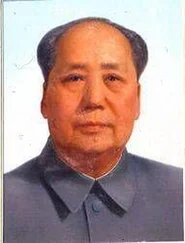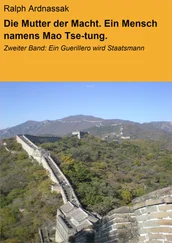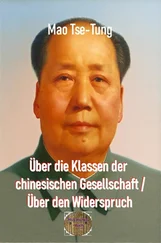Tse-tung Mao - The Little Red Book
Здесь есть возможность читать онлайн «Tse-tung Mao - The Little Red Book» весь текст электронной книги совершенно бесплатно (целиком полную версию без сокращений). В некоторых случаях можно слушать аудио, скачать через торрент в формате fb2 и присутствует краткое содержание. Жанр: Политика, на английском языке. Описание произведения, (предисловие) а так же отзывы посетителей доступны на портале библиотеки ЛибКат.
- Название:The Little Red Book
- Автор:
- Жанр:
- Год:неизвестен
- ISBN:нет данных
- Рейтинг книги:5 / 5. Голосов: 1
-
Избранное:Добавить в избранное
- Отзывы:
-
Ваша оценка:
- 100
- 1
- 2
- 3
- 4
- 5
The Little Red Book: краткое содержание, описание и аннотация
Предлагаем к чтению аннотацию, описание, краткое содержание или предисловие (зависит от того, что написал сам автор книги «The Little Red Book»). Если вы не нашли необходимую информацию о книге — напишите в комментариях, мы постараемся отыскать её.
The Little Red Book — читать онлайн бесплатно полную книгу (весь текст) целиком
Ниже представлен текст книги, разбитый по страницам. Система сохранения места последней прочитанной страницы, позволяет с удобством читать онлайн бесплатно книгу «The Little Red Book», без необходимости каждый раз заново искать на чём Вы остановились. Поставьте закладку, и сможете в любой момент перейти на страницу, на которой закончили чтение.
Интервал:
Закладка:
Introductory note to "A Resolute Struggle Must Be Waged Against the Tendency Towards Capitalism" (1955), The Socialist Upsurge in China's Countryside, Chinese ed., Vol. I.
The agricultural co-operative movement has been a severe ideological and political struggle from the very beginning. No cooperative can be established without going through such a struggle. Before a brand-new social system can be built on the site of the old, the site must be swept clean. Invariably, remnants of old ideas reflecting the old system remain in people's minds for a long time, and they do not easily give way. After a co-operative is established, it must go through many more struggles before it can be consolidated. Even then, the moment it relaxes its efforts it may collapse.
Introductory note to "A Serious Lesson" (1955), The Socialist Upsurge in China's Countryside, Chinese ed., Vol. I.
The spontaneous forces of capitalism have been steadily growing in the countryside in recent years, with new rich peasants springing up everywhere and many well-to-do middle peasants striving to become rich peasants. On the other hand, many poor peasants are still living in poverty for lack of sufficient means of production, with some in debt and others selling or renting out their land. If this tendency goes unchecked, the polarization in the countryside will inevitably be aggravated day by day. Those peasants who lose their land and those who remain in poverty will complain that we are doing nothing to save them from ruin or to help them overcome their difficulties. Nor will the well-to-do middle peasants who are heading in the capitalist direction be pleased with us, for we shall never be able to satisfy their demands unless we intend to take the capitalist road. Can the worker-peasant alliance continue to stand hrm in these circumstances? Obviously not. There is no solution to this problem except on a new basis. And that means to bring about, step by step, the socialist transformation of the whole of agriculture simultaneously with the gradual realization of socialist industrialization and the socialist transformation of handicrafts and capitalist industry and commerce; in other words, it means to carry out co-operation and eliminate the rich-peasant economy and the individual economy in the countryside so that all the rural people will become increasingly well off together. We maintain that this is the only way to consolidate the worker-peasant alliance.
On the Question of Agricultural Co-operation (July 31, 1955), 3rd ed., pp. 26-27.*
By over-all planning we mean planning which takes into consideration the interests of the 600 million people of our country. In drawing up plans, handling affairs or thinking over problems, we must proceed from the fact that China has a population of 600 million people, and we must never forget this fact.
On the Correct Handling of Contradictions Among the People (February 27, 1957), 1st pocket ed. p. 47.
In addition to the leadership of the Party, a decisive factor is our population of 600 million. More people mean a greater ferment of ideas, more enthusiasm and more energy. Never before have the masses of the people been so inspired, so militant and so daring as at present.
"Introducing a Co-operative" (April 15, 1958).
Apart from their other characteristics, the outstanding thing about China 's 600 million people is that they are "poor and blank". This may seem a bad thing, but in reality it is a good thing. Poverty gives rise to the desire for change, the desire for action and the desire for revolution. On a blank sheet of paper free from any mark, the freshest and most beautiful characters can be written, the freshest and most beautiful pictures can be painted.
Ibid.
After the country-wide victory of the Chinese revolution and the solution of the land problem, two basic contradictions will still exist in China. The first is internal, that is, the contradiction between the working class and the bourgeoisie. The second is external, that is, the contradiction between China and the imperialist countries. Consequently, after the victory of the people's democratic revolution, the state power of the people's republic under the leadership of the working class must not be weakened but must be strengthened.
"Report to the Second Plenary Session of the Seventh Central Committee of the Communist Party of China " (March 5, 1949), Selected Works, Vol. IV, p. 369.
"Don't you want to abolish state power?" Yes, we do, but not right now; we cannot do it yet. Why? Because imperialism still exists, because domestic reaction still exists, because classes still exist in our country. Our present task is to strengthen the people's state apparatus - mainly the people's army, the people's police and the people's courts - in order to consolidate national defence and protect the people's interests.
"On the People's Democratic Dictatorship" (June 30, 1949), Selected Works, Vol. IV, p. 418.
Our state is a people's democratic dictatorship led by the working class and based on the worker-peasant alliance. What is this dictatorship for? Its first function is to suppress the reactionary classes and elements and those exploiters in our country who resist the socialist revolution, to suppress those who try to wreck our socialist construction, or in other words, to resolve the internal contradictions between ourselves and the enemy. For instance, to arrest, try and sentence certain counterrevolutionaries, and to deprive landlords and bureaucrat-capitalists of their right to vote and their freedom of speech for a specified period of time - all this comes within the scope of our dictatorship. To maintain public order and safeguard the interests of the people, it is likewise necessary to exercise dictatorship over embezzlers, swindlers, arsonists, murderers, criminal gangs and other scoundrels who seriously disrupt public order. The second function of this dictatorship is to protect our country from subversion and possible aggression by external enemies. In that event, it is the task of this dictatorship to resolve the external contradiction between ourselves and the enemy. The aim of this dictatorship is to protect all our people so that they can devote themselves to peaceful labour and build China into a socialist country with a modern industry, agriculture, science and culture.
On the Correct Handling of Contradictions Among the People (February 27, 1957), 1st pocket ed., pp. 6-7.
The people's democratic dictatorship needs the leadership of the working class. For it is only the working class that is most far-sighted, most selfless and most thoroughly revolutionary. The entire history of revolution proves that without the leadership of the working class revolution fails and that with the leadership of the working class revolution triumphs.
"On the People's Democratic Dictatorship" (June 30, 1949), Selected Works, Vol. IV, p. 421.
The people's democratic dictatorship is based on the alliance of the working class, the peasantry and the urban petty bourgeoisie, and mainly on the alliance of the workers and the peasants, because these two classes comprise 80 to go per cent of China 's population. These two classes are the main force in overthrowing imperialism and the Kuomintang reactionaries. The transition from New Democracy to socialism also depends mainly upon their alliance.
Ibid.
Class struggle, the struggle for production and scientific experiment are the three great revolutionary movements for building a mighty socialist country. These movements are a sure guarantee that Communists will be free from bureaucracy and immune against revisionism and dogmatism, and will for ever remain invincible. They are a reliable guarantee that the proletariat will be able to unite with the broad working masses and realize a democratic dictatorship. If, in the absence of these movements, the landlords, rich peasants, counterrevolutionaries, bad elements and monsters were all allowed to crawl out, while our cadres were to shut their eyes to all this and in many cases fail even to differentiate between the enemy and ourselves but were to collaborate with the enemy and were corrupted, divided and demoralized by him, if our cadres were thus pulled out or the enemy were able to sneak in, and if many of our workers, peasants, and intellectuals were left defenceless against both the soft and the hard tactics of the enemy, then it would not take long, perhaps only several years or a decade, or several decades at most, before a counterrevolutionary restoration on a national scale inevitably occurred, the Marxist-Leninist party would undoubtedly become a revisionist party or a fascist party, and the hole of China would change its colour.
Читать дальшеИнтервал:
Закладка:
Похожие книги на «The Little Red Book»
Представляем Вашему вниманию похожие книги на «The Little Red Book» списком для выбора. Мы отобрали схожую по названию и смыслу литературу в надежде предоставить читателям больше вариантов отыскать новые, интересные, ещё непрочитанные произведения.
Обсуждение, отзывы о книге «The Little Red Book» и просто собственные мнения читателей. Оставьте ваши комментарии, напишите, что Вы думаете о произведении, его смысле или главных героях. Укажите что конкретно понравилось, а что нет, и почему Вы так считаете.











